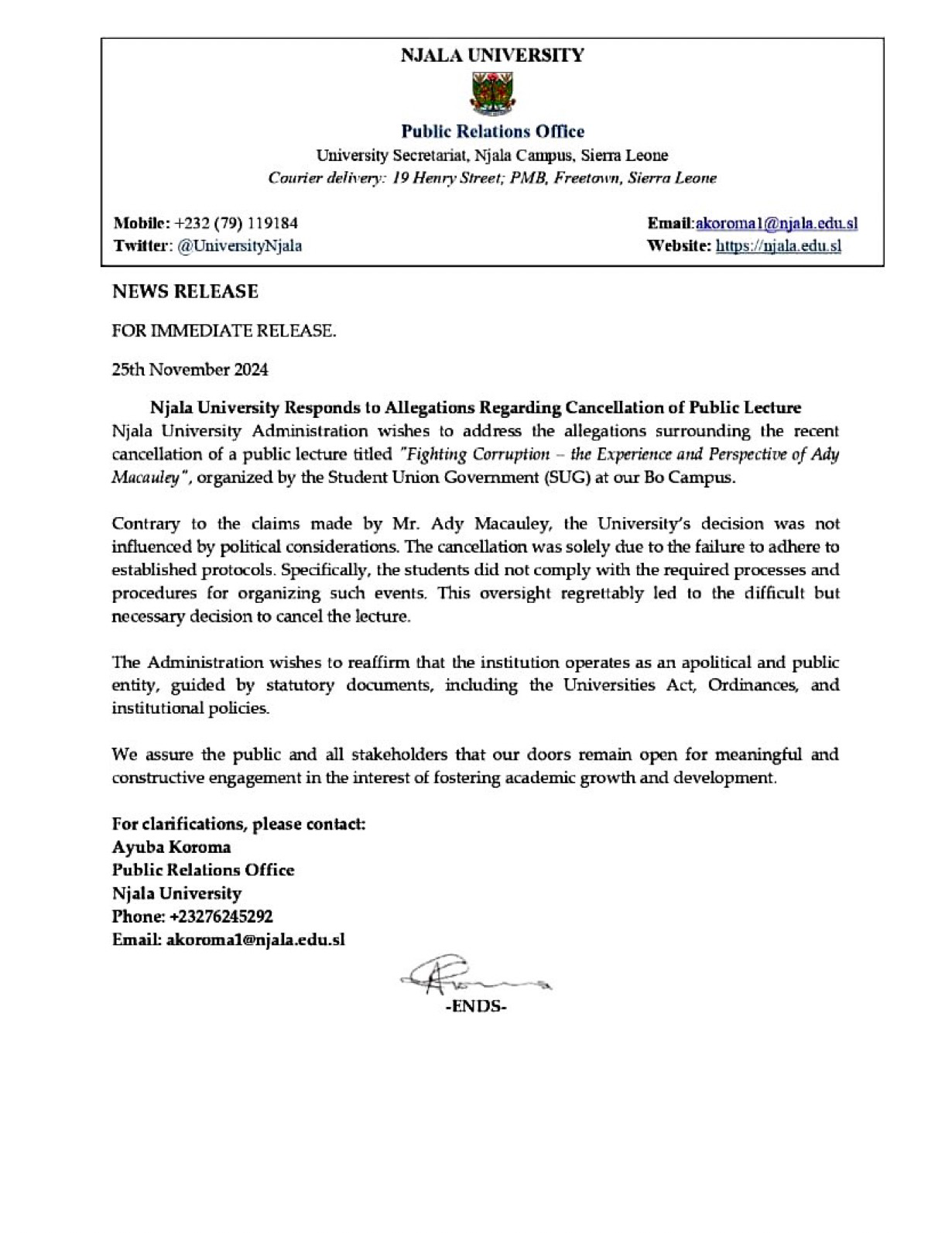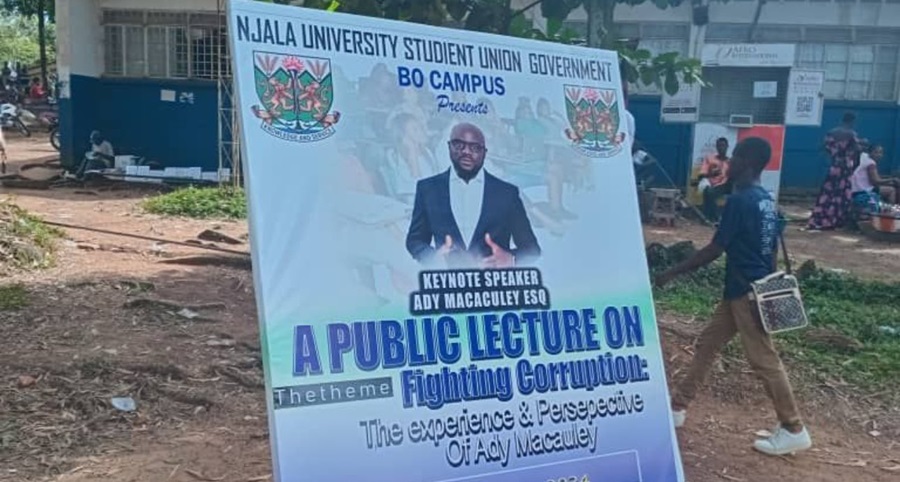Njala University has addressed allegations surrounding the cancellation of a scheduled public lecture by prominent lawyer Ady Macauley, which was to take place on November 25, 2024, at the institution’s Bo Campus.
The lecture, titled “Fighting Corruption – the Experience and Perspective of Ady Macauley,” was organized by the Student Union Government (SUG) but was cancelled by the university administration.
In a press release issued the same day, Njala University clarified that the decision to cancel the event was not politically motivated, as alleged by Mr. Macauley. Instead, the administration cited procedural lapses by the student organizers as the primary reason for the cancellation.
“Contrary to the claims made by Mr. Ady Macauley, the University’s decision was not influenced by political considerations. The cancellation was solely due to the failure to adhere to established protocols. Specifically, the students did not comply with the required processes and procedures for organizing such events,” the press release stated.
Njala University emphasized its apolitical stance and reaffirmed its commitment to academic freedom and constructive dialogue. “The Administration wishes to reaffirm that the institution operates as an apolitical and public entity, guided by statutory documents, including the Universities Act, Ordinances, and institutional policies,” the statement added.
The university also assured stakeholders and the public of its openness to meaningful engagements that foster academic growth and development.
Ady Macauley, a former Anti-Corruption Commissioner, is a notable figure in Sierra Leone and an outspoken advocate against corruption. His planned lecture had generated significant interest, sparking debate after its abrupt cancellation.
The university’s response has done little to quell speculation, with some observers questioning whether the decision might have been influenced by the sensitive nature of the topic. However, Njala University insists the incident highlights the need for strict adherence to its procedural requirements for organizing events on campus.
The situation has brought attention to the university’s internal policies and the broader discourse on freedom of expression and academic independence in Sierra Leone.



 4 Comments
4 Comments 









This cancellation is politically motivated by the university administration. What is bad for stopping the lecture? If it’s FBC, that would have happened.
Is he really a strong advocate against corruption?
What has he got to give when he became lawyer representing corrupt people in court. Stop double standards and let us hear something meaningful.
Politics is over, let focus on development of any type to put food on the table
I believe that this cancellation is politically motivated. Njala University will suffer the day APC comes to power.